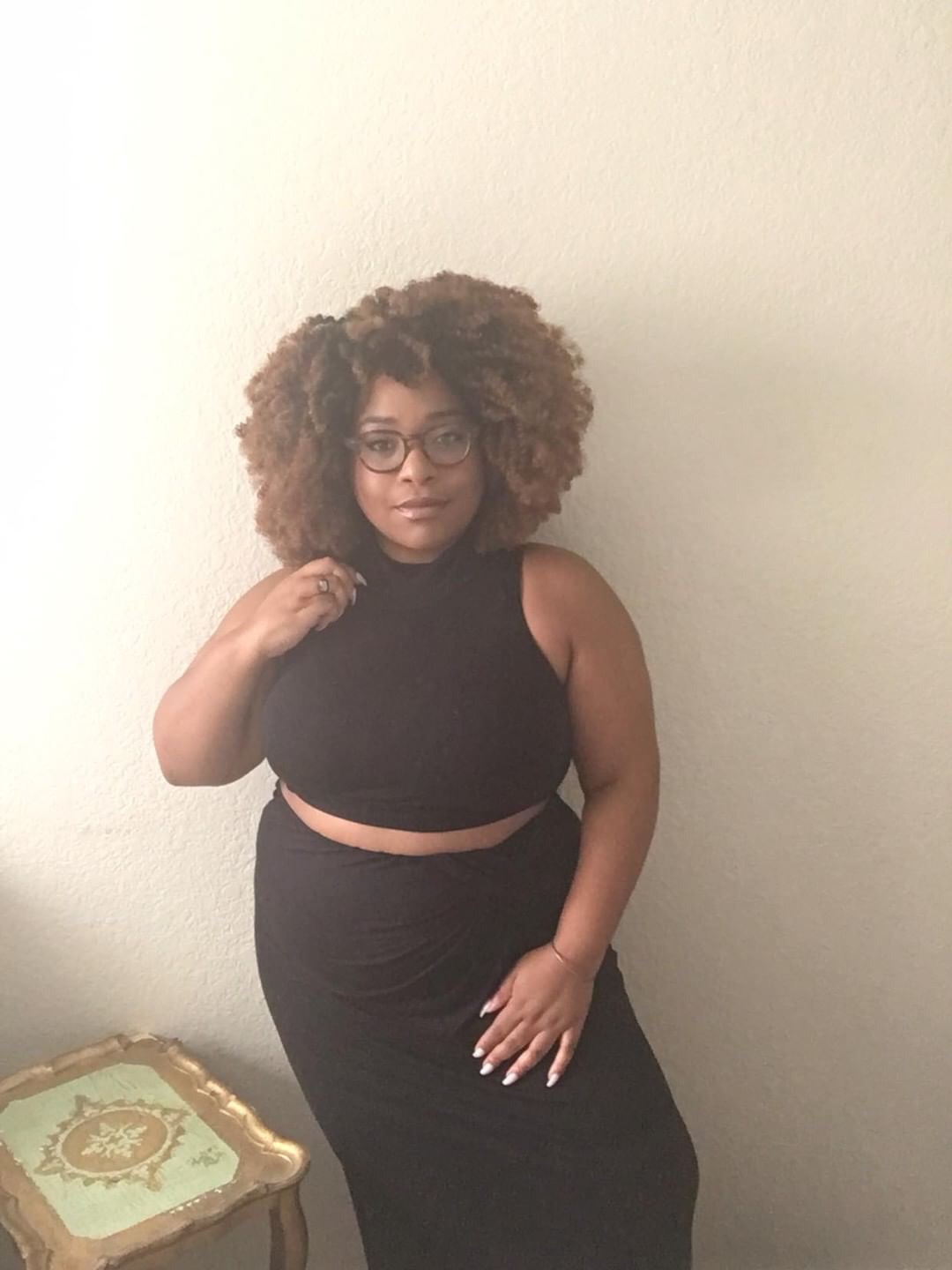THE HISTORY OF THE BODY POSITIVITY MOVEMENT (FAT ACTIVISM)
What is body positivity anyways? How did the movement start?
Scrolling through your Instagram feed or reading articles on Refinery 29, you’ve probably noticed the words “body positivity” thrown around. Body positivity was a concept I first encountered when I started blogging nearly 4 years ago. While I initially thought I understood what these words meant, over time I realized there was a lot more history that I needed to explore.
Last summer, I spent time reading about the history of the fat activism movement in order to better understand the origins of the body positivity movement. Additionally, I interviewed a plus sized blogger, Nyla, who I had been a following on Instagram for a while and has strong understanding of the movement.
So where did this phrase “body positivity” come from? What is its origin?
Back in the late 1960s was when the modern movement for fat acceptance first started. Originally, it began as a protest of the discrimination and lack of access to equal opportunities for individuals who were overweight.
Many internet articles detailing the history of the movement, point to Lew Louderback’s Saturday Evening Post op-ed as a manifesto of the movement’s essence. His essay highlights the major issues that fat activists were trying to fight as well as the emotional struggles that individuals faced. (I highly recommend reading it if you’re interested in learning more about the history of fat activism.)
Reading his op-ed was incredibly eye-opening. Louderback discusses the challenges fat people faced in the workplace. Often he heard of cases where fat individuals struggled harder to find decent positions relative to their thinner peers. Ultimately, companies were concerned that overweight men or women would “tarnish” the reputation of the corporation. Through his friends, Louderback heard stories about these challenges and the horrific comments that came along with them: “An editor…settled on what he considered the perfect secretarial applicant, only to be overruled by his boss on these grounds: ‘We already have too many fat people on this floor.’”
I cringed reading this article because of the multitude of insensitive comments directed towards fat people like the one above. Sadly, Louderback writes later in the essay, that he felt most comfortable working from home as a freelancer because he didn’t have confront the judgmental looks and comments. It was the place where he was free to be himself and not feel pressured to change his weight.
So how have things changed since Louderback wrote his famous op-ed. Have we made progress? Have things truly changed? In order to understand if progress has been made, I thought it was important to talk with someone in the plus community.
A few years ago, Nyla began a blog called Short & Tailor. As a plus-sized and petite woman she often felt frustrated looking for clothing that fit her. It was during this time that she first became exposed to body positivity. Her role models early on included Gabi Fresh and True Life Warrior. Initially, she felt like she came in blind to the body positivity movement and was not as aware of the origins. She realized that she need to spend more time listening to others in order to learn what the movement was truly about.
Over time she began to realize that the body positivity movement is “way more nuanced than we give it credit for”. While fat activism ultimately gave birth to the body positive movement, this original purpose has become detached from the “bopo” messaging we see on Instagram or what we read about in superficial articles from Vogue or Glamour. In her eyes and other journalists, body positivity is the more palatable version for people to consume and it’s a diluted version of fat activism. Now this movement encapsulates more the idea of loving your own body versus ensuring that individuals regardless of their weight and appearance are given equal opportunities in the workplace, schools, fashion and media. In some ways it’s not entirely surprising that the original intent has eroded over time because it’s not as warm and fuzzy as the message of “love yourself”. “When it comes to body politics, it’s a topic that’s often considered taboo,” said Nyla.
However, it’s a topic that needs to be discussed when there are individuals who experience the world in a vastly different way than a thin person. (As a Size 6 woman, I cannot claim to know the struggles they face first hand.) It may not be a reality we want to admit, but from anecdotal evidence, it’s clear it exists.
One of the most powerful stories I’ve ever listened to about what it’s like being overweight in America was the episode of This American Life called “Tell Me I’m Fat”. When I first listened to this episode, it was astonishing for me to learn about the daily struggles and experiences of overweight and obese people in the US. It also challenged my assumptions about what factors lead to being overweight and/or obese.
If someone told you that they were treated poorly because of their size, it might be easy to brush off if you are thin and think there’s no way that this actually happens. However, it’s true one of my plus-size blogger friends says that she gets DMs on Instagram from total strangers telling her to lose weight.
When you look at someone and think that they ought to lose weight, stop and consider the fact that there’s a lot of information that you are not privy too. What does this person eat of daily basis? Are they taking mediations that might cause them to gain weight? What is their metabolism like? Are there genetic factors contributing to their body type and size? Did they have an eating disorder and now are in recovery? You can quickly see how a long list of questions can form, once you start thinking of them. It can be easy to feel pity or sorry for someone who is over weight, but I encourage you to take a step back and acknowledge that weight is complex.
On the episode of “Tell Me I’m Fat”, Ira Glass explains the complexity of weight well:
“Fat people are told all the time they're choosing to be unhealthy…the causes of obesity are way more complex than just eating too much. According to the National Institutes of Health, they include physiological, metabolic, genetic, psychological, social, and cultural factors.”
Not only has our understanding of weight been surface level, but so has our understanding of dieting. One of the most surprising stats I learned from the podcast was the following: “We haven't invented a way to make fat people thin long term. Fewer than 1 in 100 obese people get thin and keep it off, according to one recent study, which tracked over a quarter million people for nine years.”
However, it’s not just fat or obese people who are not able to keep off weight through dieting. It’s all of us that struggle to successfully diet and keep weight off long term. One of the reasons that diet’s typically fail is linked to neuroscience, according to a New York Times op-ed by Sandra Aamodt (a neuroscientist)
“…In the long run dieting is rarely effective. The root of the problem is not willpower but neuroscience. Metabolic suppression is one of several powerful tools that the brain uses to keep the body within a certain weight range, called the set point. The range, which varies from person to person, is determined by genes and life experience. When dieters’ weight drops below it, they not only burn fewer calories but also produce more hunger-inducing hormones and find eating more rewarding. The brain’s weight-regulation system considers your set point to be the correct weight for you, whether or not your doctor agrees. If someone starts at 120 pounds and drops to 80, her brain rightfully declares a starvation state of emergency, using every method available to get that weight back up to normal.”
So if we are all in the same boat in terms of how are bodies react to dieting and obesity is more complicated that simply eating too much, I think it’s even more of an argument that it’s not our place to comment on someone else’s weight or give unsolicited advice. Be respectful towards others, the same way you’d want them to be respectful towards you. Often we are our own worst critics and we don’t need more comments from society.
What about the future of the movement, where is it going? What needs to happen moving forward?
Nyla thinks the body positivity name will become fatigued, die out and ultimately be replaced by a new name. She’s expecting that we could see a re-birth in the next few years.
Is this a bad thing if the name dies out? Are we erasing progress made by the body positivity movement?
Personally, I see a rebirth of the movement being a beneficial thing. I think it’s important for the movement to return to its original purpose because plus women need to see themselves positively represented in the media and have equal access to career, job and education opportunities. Plus women deserve to live in a world where they are shown respect and don’t feel constantly torn down by society.
One important point that Nyla highlighted to me is how body positivity is currently focused on the self whereas fat activism was striving for social change. I’m paraphrasing her words, but hopefully capturing the essence of her message - while it’s a good skill to be able to tune out the haters, the burden to promote change and improve the world, should not just fall on the oppressed. We all wouldn’t be fighting this hard against ourselves and living in shame, if societal standards regarding weight and beauty changed. We as a society have an obsession with being thin, which is deep seated. We need to challenge that as a society.
Don’t get me wrong - it’s definitely important to love the skin your in (no matter what your size). However, it’s important to realize this struggle to love ourselves is being fueled by negative messaging and impossible standards OUTSIDE of ourselves. That’s a lot to overcome as an individual ever day. We need to collectively rethink how we are approaching body positivity. It’s not a fight we should have to fight alone.
In closing, I want to share Nyla’s two pieces of advice for people interested in better understanding body positivity and fat activism because I think it’s incredibly valuable.
Read history about (any) movement that you join so you can have more knowledge of it’s roots
Body Positivity/Self Love can’t be the stopping point, but rather a stepping stone for further change and progress
Hopefully this advice will inspire you to ask questions, listen and more deeply understand the realities others experience on a daily basis.
AFTERWARD: The point of this post is to acknowledge that while we all need to learn to love your bodies as they are, some of us experience more risks and consequences for being apologetically ourselves. Don’t get me wrong self love is powerful and important. However, it’s important to understand the crushing weight of societal demands and standards that fall on the shoulders on the majority of the female population in the US. All of us deserve the same access to opportunities regardless of our size.




